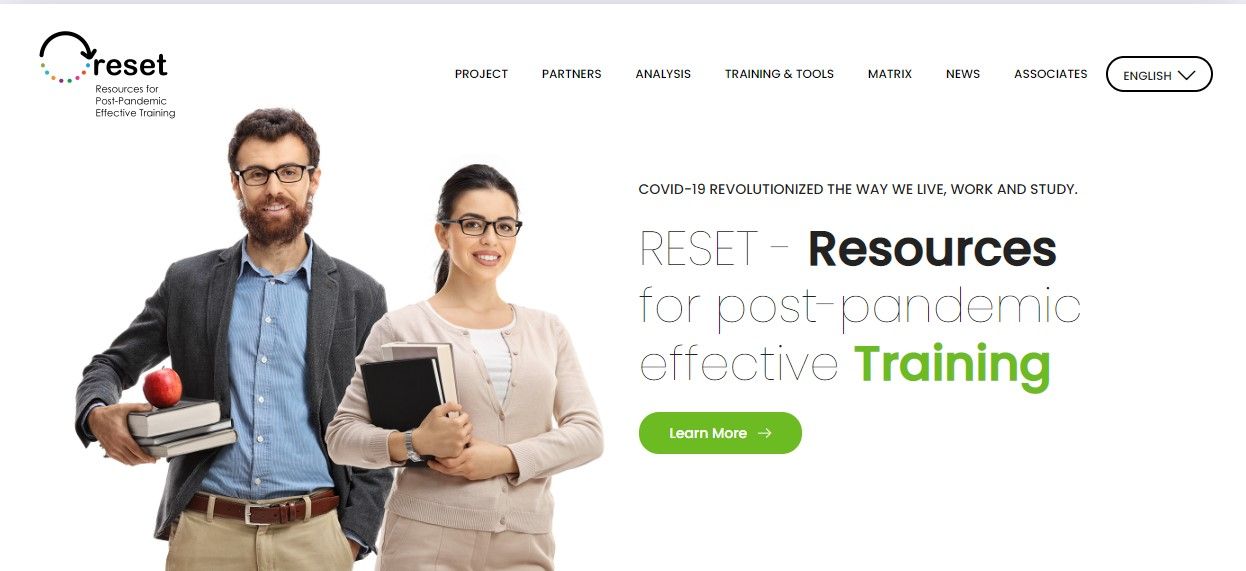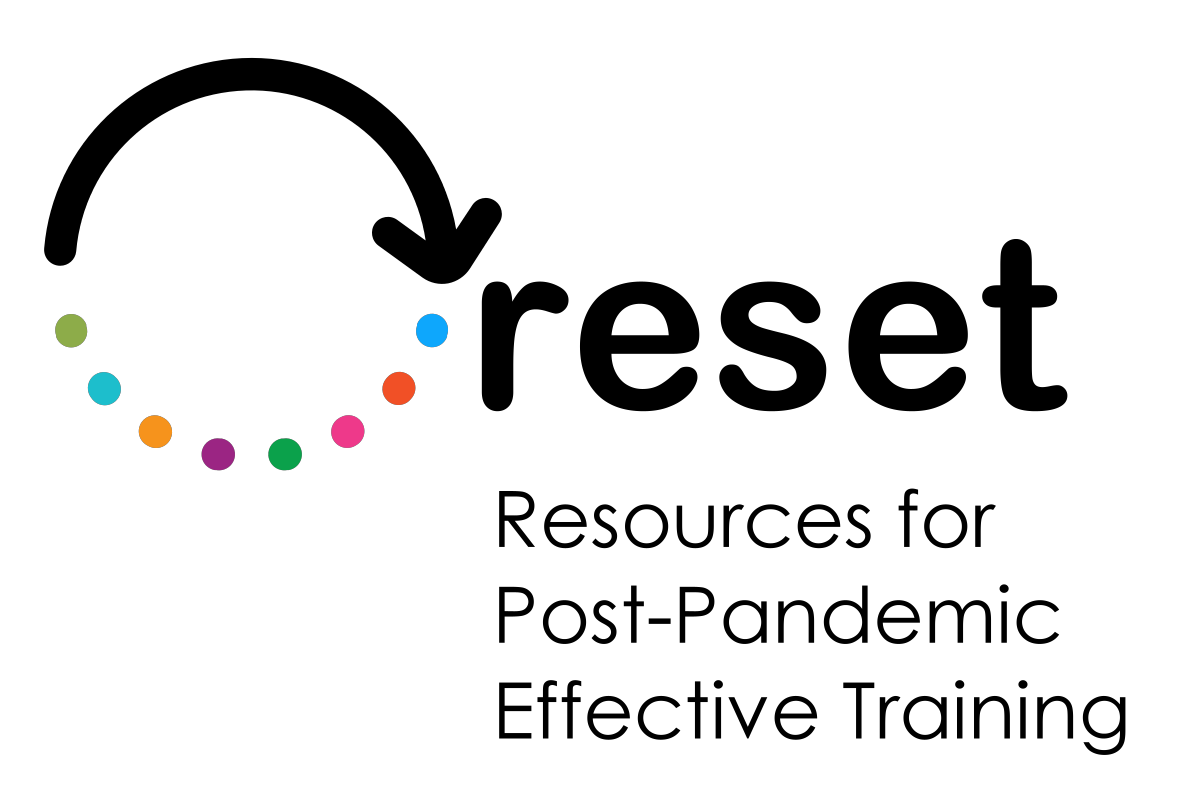
Resources for post-pandemic Effective Training: RESET platform launched
The RESET platform, which offers information on project aims, activities and results, is now online (https://project-reset.eu/). The platform will contain all the project’s information, deliverables and outputs.
RESET aims to bring resources that offer effective solutions in this post-pandemic scenario. Our syllabus, which is targeted at the VET sphere, will be developed in the form of 8 operational tools and the same number of training pills (mini-courses).
This user-friendly Platform has been developed by the Spanish partner of the consortium, IWS (Internet Web Solutions), and will be constantly updated by the partnership as a whole during the project implementation. The platform is available in five languages (English, Spanish, German, Danish and Italian) and consists of the following sections, optimised for different devices and browsers:
HOME: this section introduces users to the RESET platform, with a short text on the project background and also by highlighting:
- Analysis
- Training and Toolkit
- Matrix
PROJECT: serves as a project manifesto, pointing out its main objectives while also adding information on background, mission statement and how RESET brings together a cross-border consortium with experience in the VET world to offer significant, digital solutions.
PARTNERS: lists the Partners making up the project consortium.
ANALYSIS: an analysis of how COVID has accelerated the digital transformation process of VET and operators (not just trainers). This section will display the results of the “mapping” activities of the digital skills of VET practitioners.
TRAINING & TOOLS: includes a selection of operating tools and training pills in a free, multilingual modality.
MATRIX: builds on the operational results of the project and promotes the transferability of RESET. The Matrix is enhanced by the EU framework DigCompOrg
NEWS: to be up to date with RESET latest developments.
ASSOCIATES: to involve as many Associated Partners as possible and spread the word about RESET to users, targets, general public and ultimate beneficiaries.
RESET is managed by seven partners from five countries, i.e., Germany, Italy, Belgium, Denmark and Spain, and is co-financed by the Erasmus+ Programme of the European Commission
